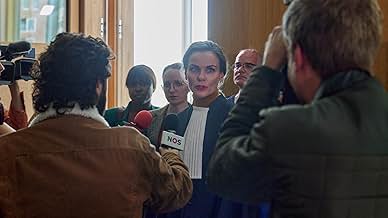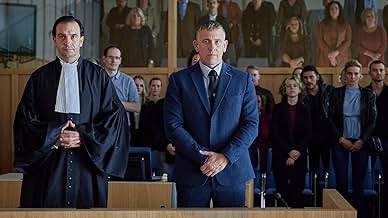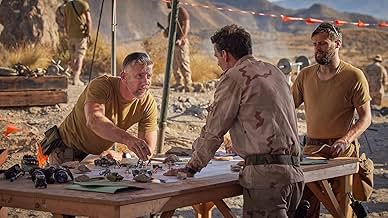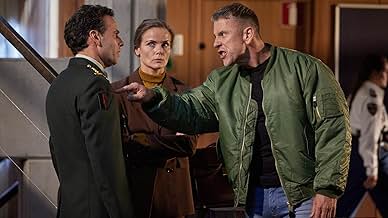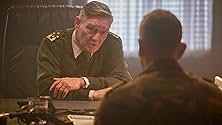Director Roel Reiné films the life of war hero and veteran Marco Kroon with De Vuurlinie. Still, Reiné didn't want to make a one-on-one biographical film about Kroon, so he added a lot of fiction to the story where the story about Kroon runs like a common thread through the film. So I'm not going to start with things that aren't right or how protagonist Waldemar Torenstra doesn't look like Marco Kroon, because that was the whole set-up behind this film. What the film actually is is an indictment of how we as Dutch treat our heroes. The Dutch would like to point out their mistakes to people and tell people how to live in our society and those who do not want to adapt to them must of course be tackled considerably. Look at what is happening in the current Netherlands, for example in politics. Our political leaders know how to strongly condemn criticism of other countries and want to be the bravest boy in the class, but in the meantime a society is disrupted to such a way that you should not fall out of tone because then you are the dick.
So it is with Marco Kroon, he has come back from his mission in Afghanistan, where he is traumatized by the terrible things he had to do and experienced. Once in the Netherlands, he receives the highest military award for his exploits, a scene that has not been filmed too strongly. For example, Reiné tries to mix the real images with the cinematic images and you can see that enormously in the difference in camera use, plus the fact that the cinematic pieces feel rather made. After that, Marco wants to pick up life again and work in his wife's pub as a bartender, something that is not really appreciated by military gentlemen of a higher hand. Because what kind of signal do you give if you suddenly go behind the tap as a soldier with a Military-Willems Order award in your pocket. It will cost Marco dearly if he is accused of drug and arms trafficking, without the Public Prosecutor having good evidence of it. The Public Prosecutor is portrayed in a strong way by Angela Schijf, a role in which you really start to hate her. Because as everyone knows, the real Marco Kroon was eventually acquitted of the drug trade, but he was for the possession of a few power surge weapons, of which he delivered three through them.
Reiné indicated that this was a bit of a kind of accusation against the current Dutch society and how we dealt with our heroes and of course there is definitely something to be said for that. Reiné indicated in an interview somewhere that their heroes were treated differently in the United States and that the Netherlands could take an example. That may be partly the case, but Reiné may have forgotten for a moment how the Americans handled their returning Vietnam veterans and how they were also vomited there by American society. So that kite doesn't quite go on, but given the current society, he does have a point and the Fire Line really knows how to put its finger on the sore spot. The film is of everything, a family drama, a court drama, but also a war film and the latter are the strongest parts of the film and is translated to the screen in an almost un-Dutch way. The tactical maneuvers, the horrors in the torn Afghanistan, but also the parts that happened there where the dogs really don't like bread, where Marco eventually falls prey to and knows how to fully explain his post-traumatic syndrome.
The Line of Fire is a very strong film about the life of war hero Marco Kroon with a fictional twist on it. This was done to actually make a film in which all soldiers will recognize themselves and to avoid the parts about incorrect facts or a Waldemar Torenstra who does not look like Kroon at all. Torenstra makes a strong performance and Reiné knows how to show the Dutch viewer that we live in a finger-wise culture and like to point out people to their mistakes, and then tell them how to live. It is of course a gross shame that someone like Marco Kroon was just accused of things he didn't do without proof. The war in Afghanistan are the strongest pieces of the film and is shown on the silver screen in an almost un-Dutch way. For the rest, the film is just very good, with the end of the award ceremony, there is actually little to criticize about the film that manages to emotion and shock by showing a peace mission in such a way that the viewer knows that a peace mission for a soldier is not a holiday, but that he ends up in total madness and a cold war.


